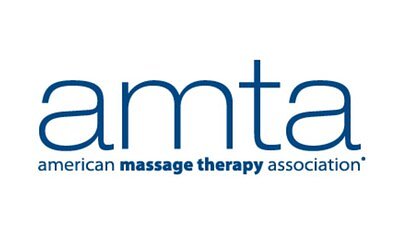
Revised Massage Compact Boosts Mobility, Aids Military Families
New updates to the Massage Therapy Compact promise greater professional mobility for therapists, especially military spouses, sparking both support and debate.
Revised Massage Compact Boosts Mobility, Aids Military Families
EVANSTON, IL – November 13, 2025
The American Massage Therapy Association (AMTA) has officially endorsed recent statutory updates to the Massage Therapy Compact, a multi-state agreement designed to streamline professional licensure for massage therapists across the nation. Developed in collaboration with the Council of State Governments (CSG) and the U.S. Department of Defense (DoD), these revisions aim to significantly enhance workforce mobility, particularly for active-duty service members, veterans, and their spouses, without compromising public safety standards.
A Unified Front for Professional Mobility
The Massage Therapy Compact represents a critical step towards modernizing professional licensure in a mobile society. By allowing eligible licensed massage therapists to practice across state lines without obtaining separate licenses for each jurisdiction, the compact seeks to reduce administrative burdens and open new opportunities for practitioners. The AMTA's support for the revised compact signifies a shift from previous positions, now aligning with the DoD and CSG in advocating for a more inclusive and accessible framework.
While the original version, known as "The IMpact," was seen by some as more rigid, the newly revised legislation directly integrates additional eligibility pathways into its statute. This proactive approach, as opposed to relying on future commission rulemaking, is designed to encourage broader adoption and build trust among professionals and lawmakers alike. This move reflects a broader trend in professional licensing, where interstate compacts are becoming a favored mechanism for states to address shared challenges and foster collaboration.
Easing the Burden on Military Families
One of the most compelling aspects of the revised compact is its direct benefit to military families. Frequent relocations are an inherent part of military life, often forcing spouses in licensed professions to navigate complex and varied state-specific licensing requirements repeatedly. This challenge contributes significantly to high rates of unemployment and underemployment among military spouses, impacting family well-being and financial stability.
Approximately 39% of active-duty spouses, representing over 130,000 individuals, work in professions requiring a license. The revised Massage Therapy Compact directly addresses this by including flexible education requirements specifically tailored for active military members and their spouses. This provision helps ensure that these dedicated individuals can maintain their licensure seamlessly, supporting career continuity during deployments and relocations. The DoD's active partnership in developing these compacts underscores the federal government's commitment to alleviating these burdens, recognizing that license portability is crucial for military family readiness and economic security.
Expanding Eligibility: A Path to Inclusion
The key updates within the revised compact are designed to broaden participation while upholding rigorous standards. A significant change is the Legacy Exam Provision, which now makes massage therapists who passed the National Certification Board for Therapeutic Massage & Bodywork (NCBTMB) exam before January 1, 2015, eligible for a multistate license. This is crucial as the NCBTMB shifted its focus from an entry-level licensing exam to a higher-level board certification after February 1, 2015, leaving many experienced practitioners in a gray area for interstate mobility.
Furthermore, the compact introduces Flexible Education Requirements, allowing therapists who graduated from a state-approved program with fewer than 625 clock hours to qualify if they have held a license in good standing for at least two years. This acknowledges diverse educational paths and practical experience within the profession. To streamline administration, Expanded Commissioner Eligibility now permits licensing boards to appoint either a board member or staff member as a Compact commissioner, aligning with best practices seen in other occupational compacts. These changes collectively aim to make the compact more inclusive, recognizing a wider pool of qualified professionals while maintaining a strong commitment to public safety through consistent educational and verification requirements.
Navigating the Broader Compact Landscape
The Massage Therapy Compact operates within a rapidly expanding landscape of interstate compacts across various professions, including nursing, physical therapy, and medicine. These agreements are celebrated for their ability to enhance professional mobility, address workforce shortages, and facilitate telehealth services, while simultaneously strengthening public protection through uniform standards and data sharing. The Council of State Governments (CSG) National Center for Interstate Compacts (NCIC) has been instrumental in this trend, with 17 occupational licensure compacts now available and hundreds of pieces of enabling legislation enacted across states.
However, the path to unified licensure is not without its complexities and debates. The Federation of State Massage Therapy Boards (FSMTB), a key partner in the original compact's development, has voiced
📝 This article is still being updated
Are you a relevant expert who could contribute your opinion or insights to this article? We'd love to hear from you. We will give you full credit for your contribution.
Contribute Your Expertise →